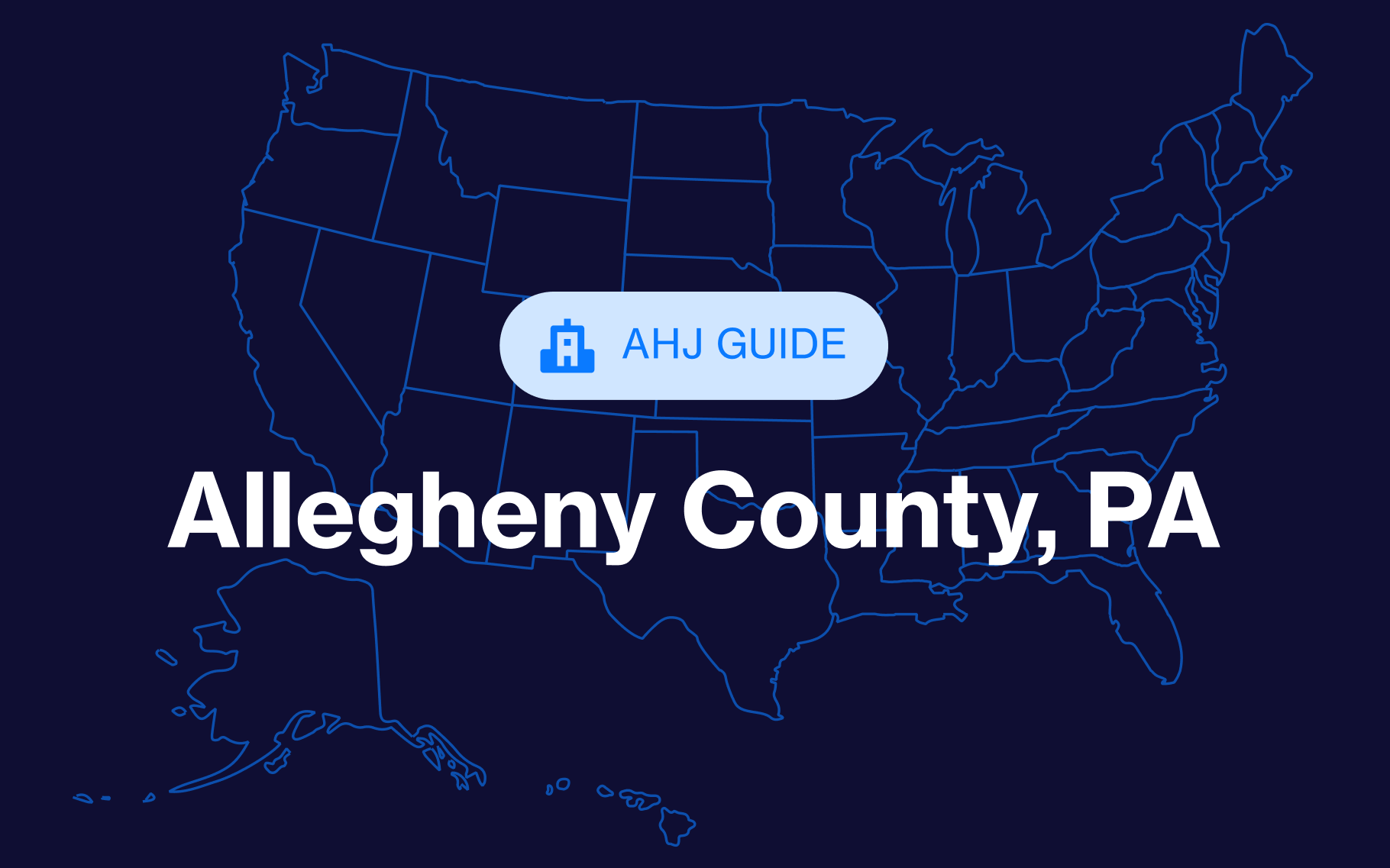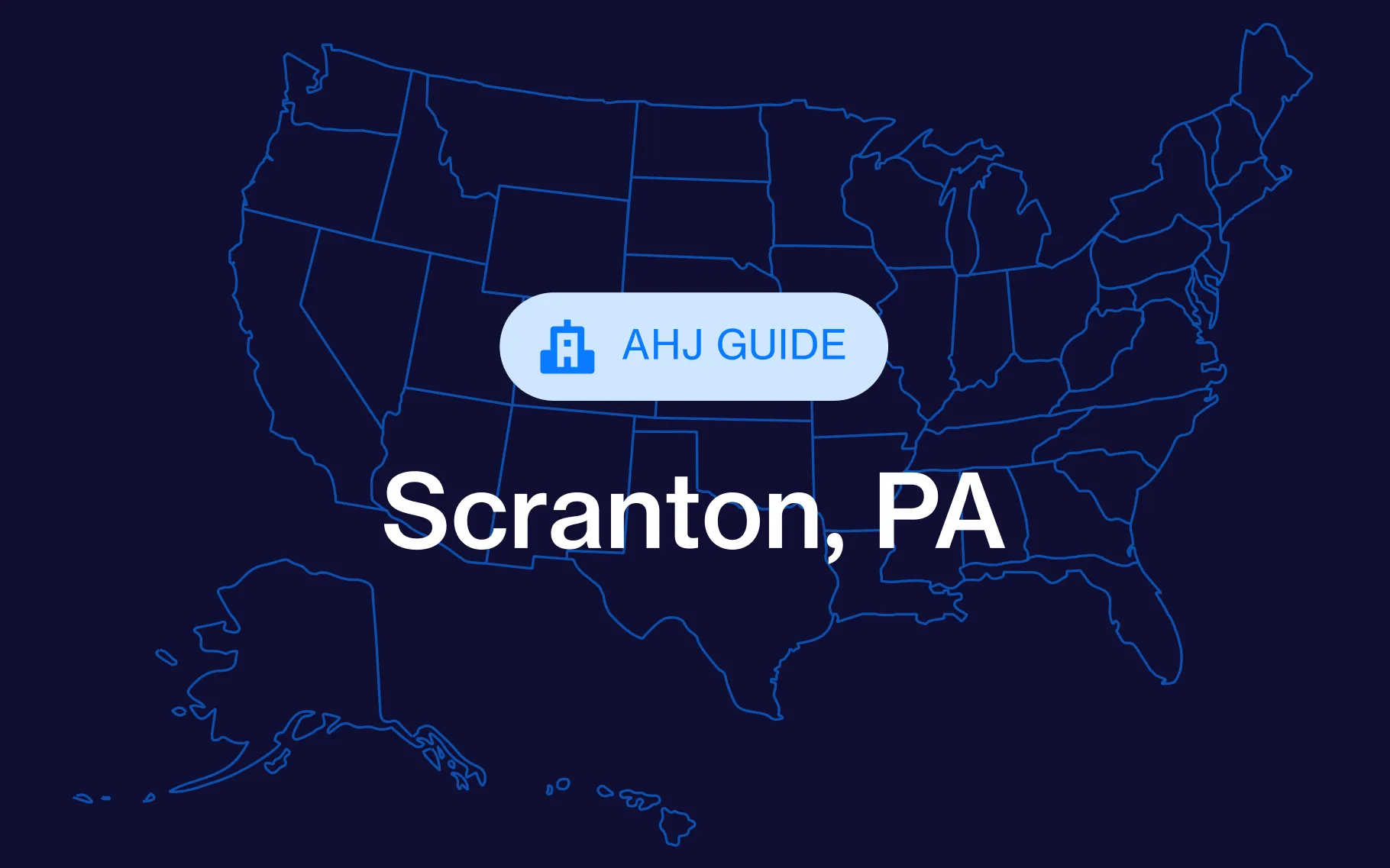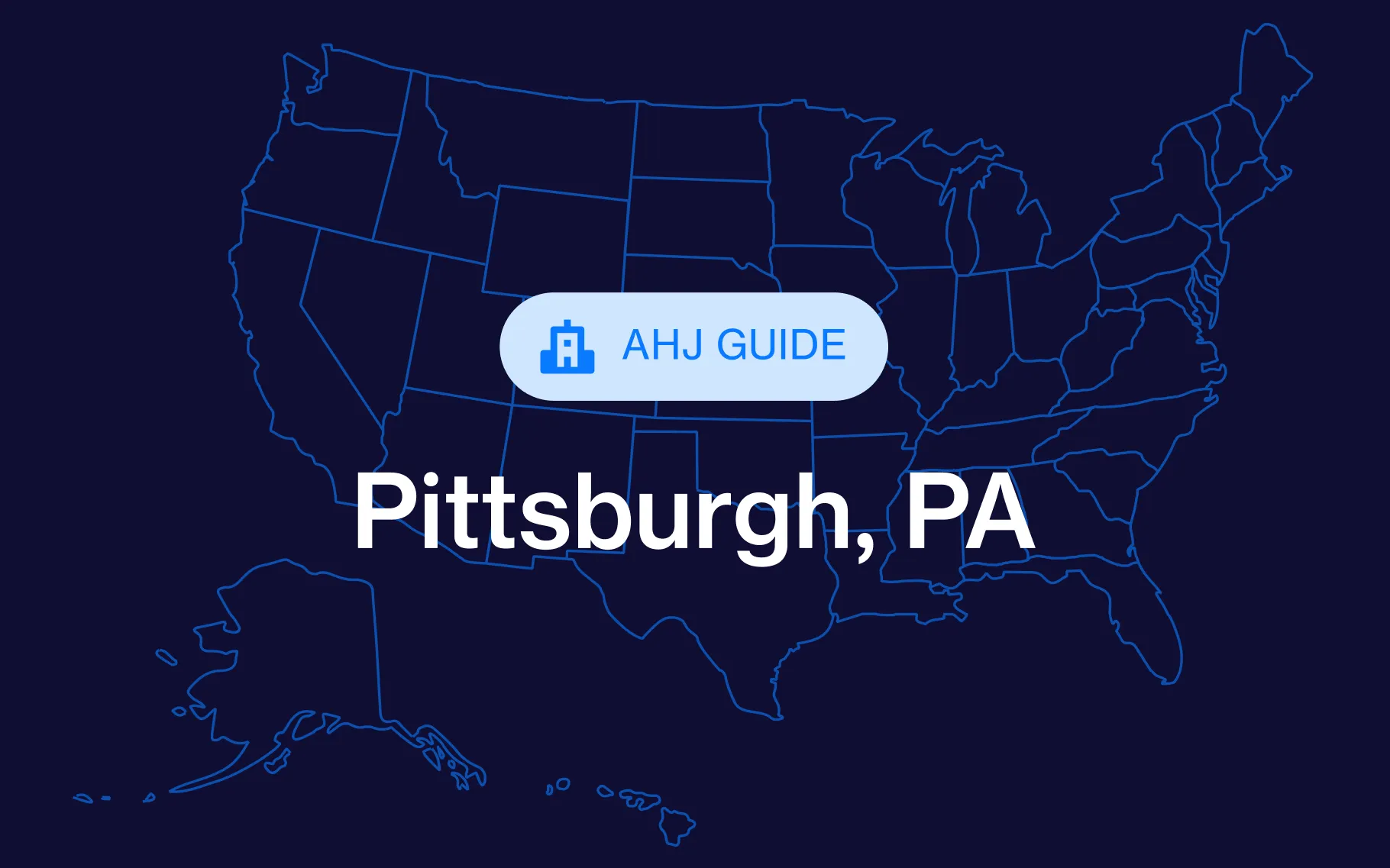If your construction or home services business is expanding into PA, it’s worth taking the time to understand Pennsylvania building permit requirements. Each municipality enforces the Uniform Construction Code (UCC) and local amendments differently, whether you're working on commercial builds, tenant improvements, or large residential projects.
What requires a building permit in Pennsylvania?
Under the Pennsylvania Uniform Construction Code (UCC) (§403.42), you need a permit for:
- Constructing, enlarging, altering, repairing, moving, or demolishing commercial buildings
- Installing, modifying, or replacing any electrical, gas, mechanical, or plumbing systems
- Changing occupancy of structures
- Emergency repairs done without delay—as long as you apply within 3 business day
Note: Minor work like fences under 6 feet, small retaining walls under 4 feet, or tanks ≤5k gallons may be exempt — but check local amendments, as town legislation will vary.
Who issues building permits in Pennsylvania?
Permits are typically issued by municipalities enforcing UCC — whether cities, townships, or boroughs. Builders in areas where municipalities haven't opted in will apply directly to the PA Department of Labor & Industry (L&I).
In cities like Pittsburgh, specialized offices (e.g., PLI) manage commercial permits—including building, electrical, mechanical, plumbing, fire, signage, and occupancy.
Pennsylvania building permit requirements
To apply, prepare the following:
- Completed application (UCC‑3) naming jurisdiction and design professionals (architect/engineer
- Three sets of sealed construction documents, including:
- Architectural, structural, plumbing, mechanical, electrical, and fire protection plans
- Site plan, grading, setbacks, utilities, parking, accessible routes
- Energy compliance reports (REScheck/COMcheck for commercial projects)
- Special inspection plans if required by IBC §§1704–1705
- Additional approvals:
Pennsylvania building permit costs
Fees vary by jurisdiction and whether you're using municipal or state issuance:
Other fees may include fire systems, signage, demolition, stormwater, and special inspections. Always check the local fee schedule for more precise estimates.
Unique considerations when permitting in Pennsylvania
Permitting in Pennsylvania involves some state-specific nuances that construction businesses should factor in early during project planning. While the state adheres to the Pennsylvania Uniform Construction Code (UCC), its enforcement and administration are delegated to individual municipalities.
Here are some unique considerations to keep in mind:
- Municipal opt-out flexibility
- Under the UCC, municipalities in Pennsylvania may choose not to enforce the code. In these cases, the Department of Labor & Industry (L&I) is the governing authority for permitting and inspections. This dynamic requires builders to verify each municipality’s status using the L&I’s Participating Municipalities list.
- Third-party plan reviews and inspections
- Many municipalities contract certified third-party agencies to handle plan reviews and field inspections. These third-party providers can have their own timelines, fees, and documentation requirements.
- Stormwater and environmental considerations
- Projects that disturb more than one acre of land must comply with the Pennsylvania Department of Environmental Protection (DEP) regulations. This may trigger the need for an NPDES permit, erosion and sedimentation control plans, and stormwater management designs.
How to get a building permit in Pennsylvania
Because Pennsylvania is a home-rule state with decentralized UCC enforcement, the process for getting a building permit in Pennsylvania depends on the project location. However, most permit applications follow a general workflow:
- Determine jurisdiction.
- Confirm whether the municipality enforces the UCC or if it falls under state enforcement.
- Contact the local building department.
- Reach out to the township, borough, or city office to learn which applications and documents are required for your specific project type.
- Prepare required documentation.
- Typical submissions include permit application, construction drawings stamped by a licensed design professional, site plans and surveys, energy code compliance reports, and zoning or land use approvals (if required).
- Submit for review.
- Submit all required materials to the local building official or the approved third-party reviewer. Electronic submittals are increasingly accepted in many jurisdictions.
- Pay permit fees.
- Fee schedules vary by jurisdiction and permit type. Commercial permits typically incur higher fees and may require escrow for inspection services.
- Permit issuance and inspections.
- Once approved, permits are issued, and work may begin. Required inspections must be scheduled with the local building department or designated third-party agency at project milestones.
- Final inspection and closeout.
- Upon completion, schedule a final inspection. Once approved, you’ll receive a certificate of occupancy, or final approval, as required.








